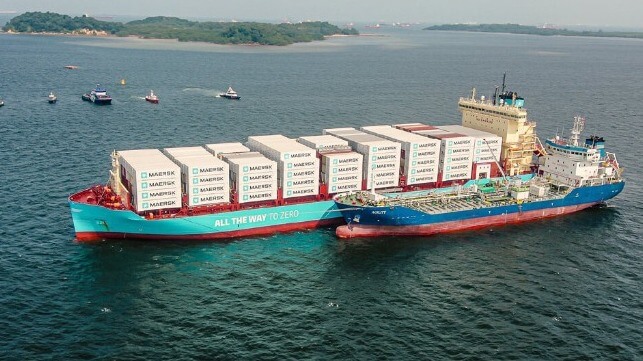One Quarter of the Fleet Will be Alternative-Fuel Capable by 2030

After another banner year for LNG-capable ordering activity, nearly half of all newbuild tonnage on the world's shipyard orderbooks is ready for alternative fuels, according to a year-end shipbuilding review from Clarksons.
"Across 2023, we recorded ~539 newbuild orders involving alternative fuel capable vessels, 45 percent of all orders placed by tonnage," said Global Head of Clarksons Research Steve Gordon. "While we remain only at the start of a vital and unprecedented fleet renewal investment program, a start has been made with 49 percent of current orderbook tonnage now alternative fueled."
The proportion is much higher in some segments of the fleet. More than 80 percent of all boxships and car carriers ordered in 2023 are dual-fuel capable, and the percentage rises well above 90 percent when including dual-fuel "ready" vessels in these two classes. By contrast, Gordon said, uptake in the bulk carrier and tanker orderbooks has been limited.
As in the past, LNG took the lead in "alternative" fuel ordering, accounting for 220 vessels (including orders for LNG-fueled LNG carriers). 125 orders specified methanol, and four pacesetting new orders will be able to burn ammonia.
Taken together with expected scrapping trends, the progress in the orderbook means that about a quarter of all tonnage could be alternative-fuel capable by 2030. (Clean fuel availability and cost-competitiveness are a separate matter, as recently noted by BIMCO.)
Other technological solutions are also gaining traction, like onboard carbon capture. Clarksons counts 31 ships that are currently testing some form of carbon capture, plus another 22 on order.
The uptake of alternative-fuel technology is still overshadowed by the commercial promise of high sulfur fuel oil, according to Clarksons' numbers. 420 existing ships installed a scrubber last year, allowing them to lawfully consume HFO and save about $200 per tonne on fuel. HFO-capable vessels now make up about 27 percent of global tonnage, and more are on the way: over 320 newbuilds were ordered with scrubbers fitted last year.
No comments:
Post a Comment